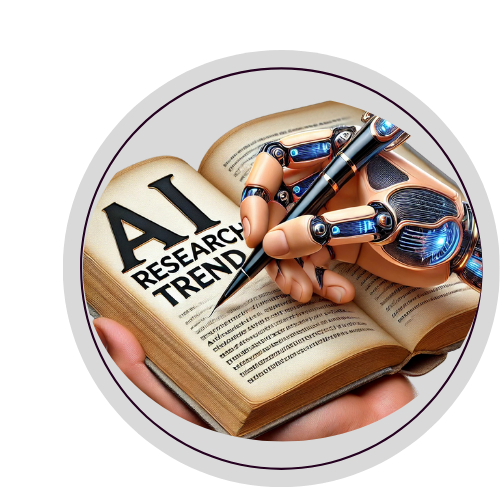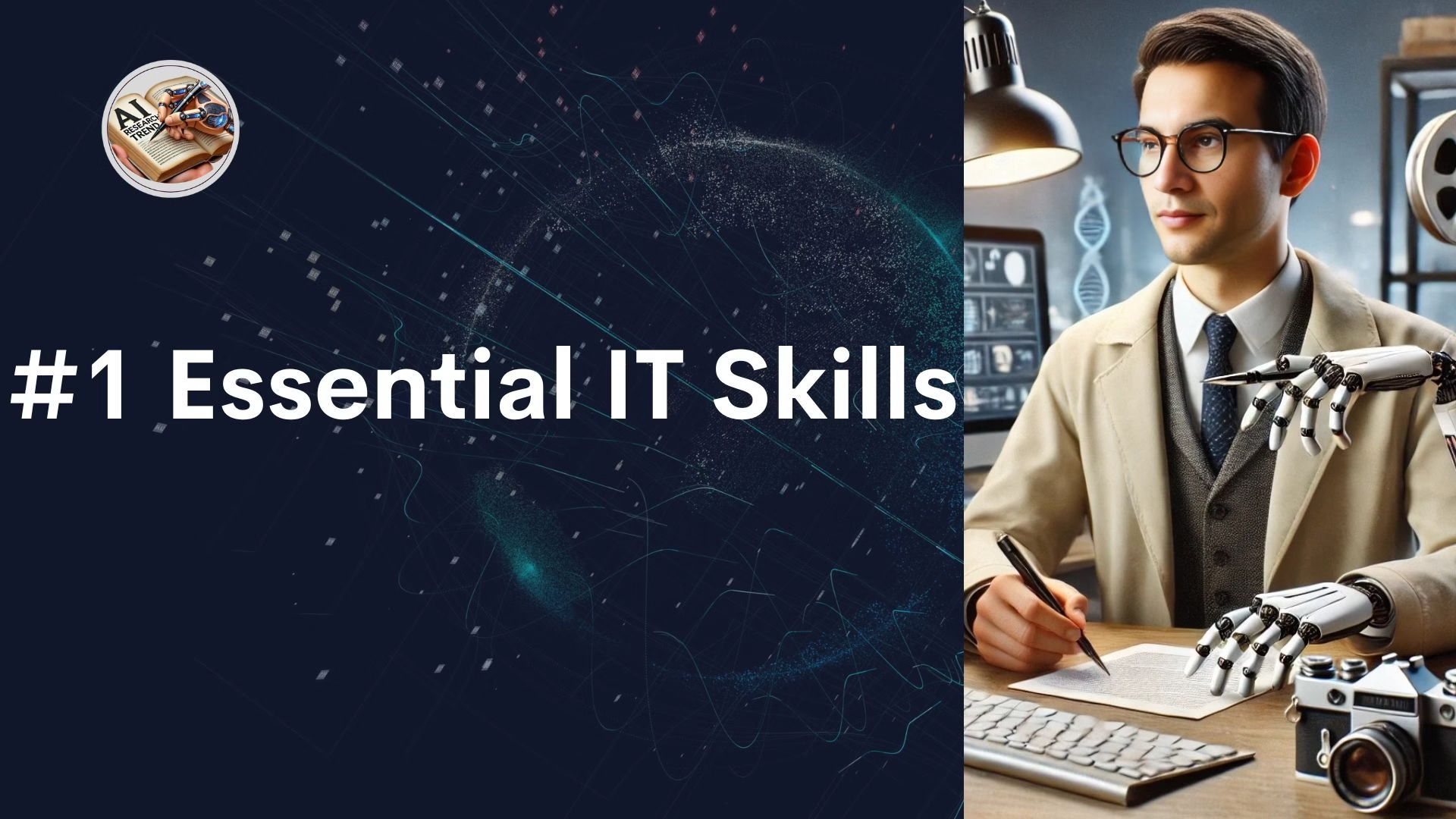In today’s world, knowing key IT skills is crucial for success. Technology is changing fast, and having good computer skills is essential. This guide will help you learn the most important IT skills for beginners.
If you’re starting your career or want to improve your skills, this article is for you. We’ll cover everything from basic computer knowledge to typing and keyboard skills. You’ll learn the skills needed to stand out in the tech world.
Table of Contents
Mastering the Fundamentals of Computer Literacy
In today’s digital world, foundational computer literacy skills are key for success. By mastering IT fundamentals quickly, you open doors to new opportunities. This keeps you ahead in a tech-driven society.
To improve computer literacy, start with the basics. Learn about the monitor, keyboard, mouse, and CPU. Knowing how each part works boosts your confidence using your device.
Next, focus on essential skills like:
- Typing proficiency
- File management and organization
- Internet navigation and research
- Basic software applications (e.g., word processing, spreadsheets)
For faster learning, take online courses or workshops. They offer hands-on practice and exercises. Many resources help you learn foundational computer literacy skills at your pace.
“The only limit to your impact is your imagination and commitment.” – Tony Robbins
Practice and apply what you learn to master IT fundamentals quickly. Try projects that use different computer skills. Don’t hesitate to ask for help when needed.
| Skill | Beginner | Intermediate | Advanced |
|---|---|---|---|
| Typing | 30 WPM | 50 WPM | 70+ WPM |
| File Management | Basic folder structure | Organized hierarchy | Cloud integration |
| Software Proficiency | Word processing | Spreadsheets | Advanced formulas |
As you improve your foundational computer literacy skills, technology becomes a powerful tool. It boosts productivity, communication, and innovation. Embrace learning and watch your confidence and skills grow.
Understanding the Basics of Operating Systems
For those starting out in IT, understanding basic computer concepts is key. Learning about operating systems is a big part of mastering foundational computer skills. Knowing how to use Windows or Mac OS is crucial.
Operating systems are the heart of your computer. They manage hardware, software, and resources. They also let you interact with your device and run apps. The most common ones are Microsoft Windows and Apple’s Mac OS.
Navigating Windows and Mac OS
Windows and Mac OS aim to be easy to use. But they have different interfaces and features. Here are some main differences:
| Feature | Windows | Mac OS |
|---|---|---|
| Start Menu | Yes | No (Dock is used instead) |
| File Explorer | Yes | Finder |
| Keyboard Shortcuts | Ctrl + key | Command + key |
| Right-click | Yes | Control + click or two-finger tap |
Even with differences, both systems offer basic functions. These include launching apps, managing files, and adjusting settings. Learning these basics boosts your computer skills.
Mastering File Management and Organization
Good file management keeps your digital space tidy. Here are some tips:
- Create a logical folder structure to categorize your files
- Use clear and descriptive names for files and folders
- Regularly sort and purge unnecessary files
- Utilize search functions to quickly locate specific files
- Implement a consistent backup strategy to protect important data
“The key to mastering your operating system is to explore its features, experiment with different settings, and develop a workflow that suits your needs.” – Tech Expert John Smith
Understanding and mastering your operating system is key. It sets a strong base for IT skills and computer literacy. Dive into learning and use resources like tutorials to improve your skills.
Honing Your Typing and Keyboard Skills
In today’s world, typing and keyboard skills are key. They boost your productivity and efficiency. Learning to type well is crucial for career growth and staying competitive.
To get better at typing, try these tips:
- Practice regularly using online typing tutorials and games
- Maintain proper posture and hand placement on the keyboard
- Focus on accuracy first, then gradually increase your speed
- Use typing exercises that target your weaknesses, such as specific letter combinations or punctuation marks
Mastering touch typing is a valuable skill. It lets you type faster and more efficiently. By practicing touch typing, you build muscle memory and focus better on your work.
“The ability to type quickly and accurately is not just a valuable skill in today’s job market, but it’s also a fundamental aspect of computer literacy that can open doors to new opportunities and career growth.”
Knowing keyboard shortcuts also boosts your productivity. Shortcuts for tasks like copying and pasting save time. By mastering these skills, you’re ready for many tasks in your life.
Mastering Office Productivity Software
In today’s fast-paced work world, knowing office software well is key. It can really help your career. By mastering computer concepts easily, you can work faster and impress in job interviews. Here are some essential computer knowledge tips for Microsoft Word, Excel, and PowerPoint.

Becoming Proficient in Microsoft Word
Microsoft Word is a must for most businesses. To get good at it, focus on these skills:
- Formatting documents with styles, headers, and footers
- Using templates for consistent branding
- Collaborating with track changes and comments
- Mastering keyboard shortcuts for efficient editing
Excelling at Spreadsheets with Microsoft Excel
Excel is great for organizing, analyzing, and showing data. Here are some key skills to master:
| Skill | Description |
|---|---|
| Formulas and Functions | Learn to use formulas like SUM, AVERAGE, and IF for data analysis |
| Data Visualization | Create charts and graphs to effectively communicate insights |
| Pivot Tables | Summarize and analyze large datasets with ease |
| Conditional Formatting | Highlight important data points and trends visually |
Creating Engaging Presentations with PowerPoint
PowerPoint is key for making presentations that grab your audience’s attention. Focus on these skills:
- Designing visually appealing slides with consistent themes
- Using animations and transitions effectively
- Incorporating multimedia elements like images and videos
- Mastering presentation delivery techniques
“Productivity is being able to do things that you were never able to do before.” – Franz Kafka
By improving in Microsoft Word, Excel, and PowerPoint, you can show off your computer skills for job interviews. This can make you more valuable at work. Spend time learning these important office tools, and your career will take off.
Developing Essential IT Skills for Effective Communication
In today’s digital workplace, essential tech skills for the workplace go beyond basic computer skills. Being able to communicate well is key. Learning to use tools for email and online work helps you succeed in any job.
Mastering Email Etiquette and Management
Email is a main way people talk in most jobs. To do well, write clear, short messages with good subject lines and proper language. Use folders and labels to find important emails fast. Delete old emails to keep your inbox tidy.
Your emails show how professional and detail-oriented you are.
Collaborating Effectively with Online Tools
Today’s jobs use online tools a lot for teamwork and managing projects. Get to know tools like:
- Slack for instant messaging and sharing files
- Zoom or Microsoft Teams for video calls
- Google Drive or Dropbox for storing and sharing documents
- Trello or Asana for managing projects and tasks
Knowing how to use these critical computer literacy concepts helps you work well with others, no matter where they are. Using these tools well makes communication better, work more efficient, and shows you’re tech-savvy.
“Effective communication is 20% what you know and 80% how you feel about what you know.” – Jim Rohn
Keep improving your IT skills, and remember, clear, efficient communication is key to teamwork. By getting good at email and using online tools, you’ll be a valuable part of today’s workplace.
Mastering Internet Navigation and Research
In today’s world, understanding internet basics is key for success. It’s a must-have IT skill for both personal and work life. Learning to navigate and research online helps you find what you need fast and make smart choices.
To be good at finding information online, start with Google. Use the right keywords and try advanced search tricks. For example, use quotes for exact phrases and minus signs to ignore certain words. These tips will help you find the best and most accurate info.

- Authority: Look for content from reputable websites, organizations, and experts in the field.
- Accuracy: Verify information by cross-referencing with other reliable sources.
- Currency: Ensure the information is up-to-date and relevant to your needs.
- Objectivity: Be aware of potential biases and consider multiple perspectives on a topic.
“The internet is becoming the town square for the global village of tomorrow.” – Bill Gates
It’s also important to stay safe online. Be careful with links from unknown places and check if websites are real before sharing personal info or buying things online. By learning these important skills, you can move through the internet with ease and find lots of useful information.
Understanding Basic Network and Security Concepts
In today’s digital world, top it skills for new tech jobs are key. Knowing basic network and security concepts is vital for critical computer literacy for professionals. By mastering digital skills for it careers, you can keep your data and devices safe from threats.
Protecting Your Data and Devices
Securing your digital life starts with protecting your data and devices. Use strong passwords, enable two-factor authentication, and keep your software up to date. A password manager can help with complex passwords. Also, be careful with public Wi-Fi, as it can be risky.
Here are some tips to keep your devices safe:
- Install reputable antivirus and anti-malware software
- Enable firewall protection on your devices
- Regularly back up your important data to an external drive or cloud storage
- Be cautious when downloading attachments or clicking on links from unknown sources
Recognizing Common Cyber Threats
Knowing how to spot and avoid common cyber threats is crucial. Some common threats include:
| Threat | Description |
|---|---|
| Phishing | Fraudulent emails or messages designed to trick you into revealing sensitive information |
| Malware | Malicious software that can damage or gain unauthorized access to your devices |
| Ransomware | A type of malware that encrypts your files and demands payment for their release |
| Social Engineering | Techniques used to manipulate individuals into divulging confidential information or performing actions that compromise security |
“Cybersecurity is a shared responsibility, and it boils down to this: in cybersecurity, the more systems we secure, the more secure we all are.” – Jeh Johnson, former U.S. Secretary of Homeland Security
By learning about these threats and following security best practices, you can lower your risk of cyber attacks. This helps protect your valuable data and assets.
Developing Problem-Solving Skills for IT Issues
As you move up in your IT career, you’ll face many technical challenges. Learning to solve problems is key to success in the IT world. By improving your troubleshooting skills, you’ll be a big help to any team.
To get better at solving problems, learn about common IT issues and how to fix them. This foundational IT knowledge is essential for students and professionals. Practice by working on real projects and learning from experts.
When you run into an IT problem, use a step-by-step method:
- Find out what the problem is and get all the details
- Split the problem into smaller parts that are easier to handle
- Try out different solutions
- Choose the best solution and check how it works
“The only way to learn is by solving problems yourself, not by reading how other people have done it.” – Erik Meijer, computer scientist
Also, keep learning new things. Stay current with the latest tech and trends. Use online courses, workshops, and certifications to keep up. Join IT forums and networks to share and learn from others.
Remember, improving your problem-solving skills takes time. See challenges as chances to grow. Don’t hesitate to ask for help. With hard work and a willingness to learn, you’ll be ready for any IT problem.
Staying Current with Emerging Technologies
In today’s fast-changing IT world, keeping up with new tech and trends is key to success. Having a solid base of computer knowledge essentials is a start. But to really shine, you need to keep learning and stay ahead.
Looking to 2024, several areas will shape the IT world. These include:
- Artificial Intelligence and Machine Learning
- Cloud Computing and Serverless Architecture
- Cybersecurity and Data Privacy
- Internet of Things (IoT) and Edge Computing
- Blockchain and Distributed Ledger Technology
Keeping Up with Industry Trends
To know the best IT skills to master in 2024 and more, try these tips:
- Read industry news and blogs
- Go to conferences and webinars
- Join professional groups and forums
- Connect with leaders on social media
“The only constant in the technology industry is change.” – Marc Benioff, CEO of Salesforce
Continuous Learning and Skill Development
Investing in your skills is vital for IT success. Here are ways to keep learning and growing:
| Learning Method | Benefits |
|---|---|
| Online Courses and Certifications | Flexible, self-paced learning; industry-recognized credentials |
| Hands-on Projects and Labs | Practical experience; portfolio building |
| Mentorship and Coaching | Personalized guidance; career advancement |
| Tech Meetups and Hackathons | Networking; exposure to new ideas and technologies |
By keeping up with new tech and skills, you’ll be ready for IT’s fast pace. Make lifelong learning a key part of your computer knowledge essentials. This way, you’ll be ready for the future’s challenges and chances.
Enhancing Your Digital Literacy for Career Growth
In today’s fast-changing digital world, knowing a lot about it business knowledge and computer literacy is key. These skills help you stand out in tech and open up new career paths. They are crucial in a competitive job market.

To get better at digital skills, start with the basics. This computer literacy guide for beginners will help. Learn to use operating systems, improve your typing, and master office software. These skills are the foundation of your digital abilities.
After mastering the basics, dive deeper into it business knowledge. Look into technologies and software specific to your field. For instance:
| Industry | Relevant Technologies |
|---|---|
| Marketing | CRM systems, analytics tools, social media platforms |
| Finance | Financial modeling software, data visualization tools |
| Healthcare | Electronic health records, telemedicine platforms |
| Education | Learning management systems, educational apps |
As you grow your it skills to stand out in tech, keep learning. Stay up-to-date with new trends. Attend conferences, webinars, and take online courses to stay sharp.
“The illiterate of the 21st century will not be those who cannot read and write, but those who cannot learn, unlearn, and relearn.” – Alvin Toffler
By improving your digital literacy, you show you’re adaptable and eager to grow. These traits are highly sought after in today’s tech world. Invest in your it business knowledge and watch your career take off.
Mastering Data Management and Organization
In today’s digital age, mastering computer skills for success means managing your data well. Learning key tech skills for beginners helps keep your files safe and easy to find. Here are some important IT skills you must learn today for better data management:
Effective File Storage and Retrieval Techniques
Having a well-organized file system is crucial. Use clear names for your files and folders. This makes it easier to find what you need. Here are some tips for naming files:
- Use clear, concise names
- Include dates in the format YYYYMMDD
- Use underscores or hyphens instead of spaces
- Include version numbers for multiple revisions
Utilizing Cloud Storage Solutions
Cloud storage has many benefits, like automatic backups and easy sharing. It’s great for accessing files from anywhere. Here are some popular cloud storage options:
| Provider | Free Storage | Paid Plans |
|---|---|---|
| Google Drive | 15 GB | Starting at $1.99/month for 100 GB |
| Dropbox | 2 GB | Starting at $9.99/month for 2 TB |
| Microsoft OneDrive | 5 GB | Starting at $1.99/month for 100 GB |
When using cloud storage, remember to:
- Enable two-factor authentication for added security
- Regularly review and remove unnecessary files
- Use file syncing to keep local and cloud copies up-to-date
“The key to mastering data management is developing a system that works for you and sticking to it consistently.” – Jane Smith, IT Expert
By using good file storage methods and cloud storage, you’ll improve your computer skills. These key tech skills for beginners are vital IT skills you must learn today to stay organized and productive online.
Developing Basic Coding and Programming Skills
In today’s world, mastering basic IT concepts easily is key for career growth. You don’t have to be a pro programmer to benefit. Basic coding skills make you more valuable at work.
Learning coding basics helps you understand software and apps. This lets you talk better with tech teams and solve problems on your own. These must-know computer skills for success also boost your creativity and problem-solving.

Start with easy programming languages like Python or JavaScript. They’re great for beginners and have lots of online help. As you get better, you can learn more advanced topics like web development or data analysis.
“Everyone should learn to program a computer because it teaches you how to think.” – Steve Jobs
Learning coding and programming can really boost your career. It opens up new chances and helps you do more at work. Whether it’s automating tasks, making scripts, or working better with developers, these skills are powerful.
To improve your coding and programming, check out these resources:
- Online learning platforms like Codecademy, Coursera, or Udemy
- Free coding bootcamps and workshops
- Open-source projects and coding challenges on platforms like GitHub
- Local coding meetups and hackathons
Getting good at coding and programming takes time, patience, and practice. By spending time learning these IT skills, you’ll be ready to succeed in the digital world.
Understanding the Importance of Cybersecurity
In today’s world, knowing about cybersecurity is key. We use technology for many things, so keeping our data safe is vital. Learning about cybersecurity helps protect you and your work from online threats.
Good cybersecurity habits are a must in tech fields. Use strong passwords, turn on two-factor authentication, and keep your software up to date. These steps help lower the chance of cyberattacks and data breaches.
Implementing Strong Passwords and Authentication
Using strong, unique passwords is a big step in improving your cybersecurity. Don’t use easy-to-guess info like birthdays. Instead, mix letters, numbers, and symbols. Also, use two-factor authentication to add extra security to your accounts.
Recognizing and Avoiding Phishing Scams
Phishing scams are common online threats. They try to get you to share personal info or download malware. To stay safe, watch out for suspicious emails, messages, or calls asking for your info or to click on links. Being careful and informed helps keep your digital world safe.
To excel in the rapidly evolving tech industry, mastering foundational IT skills and computer literacy is essential. Whether you’re a beginner looking to start your journey or a professional aiming to upskill, there are numerous resources available. For instance, the Google IT Support Professional Certificate offers comprehensive training for foundational IT knowledge, while platforms like IBM Skills Network and Microsoft Learn provide specialized courses to advance your skills. Additionally, if you’re interested in networking, the Cisco Networking Academy offers excellent resources to build your technical expertise. By leveraging these platforms, you can enhance your technical capabilities and set yourself up for success in the tech world.
FAQ
What are the most essential IT skills for beginners?
For beginners, key IT skills include basic computer knowledge, understanding operating systems, and using office software. Also, learning to communicate well online is important. These skills are the foundation for success in today’s job market.
How can I quickly improve my computer literacy?
To boost your computer skills fast, start with the basics. Learn to navigate your operating system, manage files, and improve your typing. Hands-on practice, online tutorials, and advice from experts can help you learn quickly.
Why is it important to understand basic network and security concepts?
Knowing the basics of networks and security is vital today. It helps protect your data and devices from online threats. It also keeps your online activities safe and supports your organization’s security.
What are some must-have IT skills for career growth?
For career advancement, focus on skills like office software proficiency, digital communication, and data management. Knowing a bit of coding and programming is also beneficial. These skills can make you stand out and open new job opportunities.
How can I stay current with emerging technologies and industry trends?
To keep up with new tech and trends, make learning a habit. Read industry news, attend webinars, join online forums, and network. A growth mindset and seeking new knowledge will keep you ahead.
What are the benefits of mastering office productivity software?
Knowing office software like Word, Excel, and PowerPoint boosts your work efficiency. These skills help you create professional documents, analyze data, and make great presentations. You’ll become a valuable team member.
Why is it important to develop problem-solving skills for IT issues?
Problem-solving skills are crucial for IT challenges. They help you fix common issues, keep work flowing, and show your worth to employers. Strong problem-solving skills can lead to career growth.
How can I enhance my digital literacy for career growth?
To grow your digital skills, focus on a broad range of IT abilities. Master office software, learn coding basics, and keep up with new tech. Apply your skills in real projects and show them to employers to advance your career.



1 thought on “#1 Essential IT Skills You Must Know to Succeed”